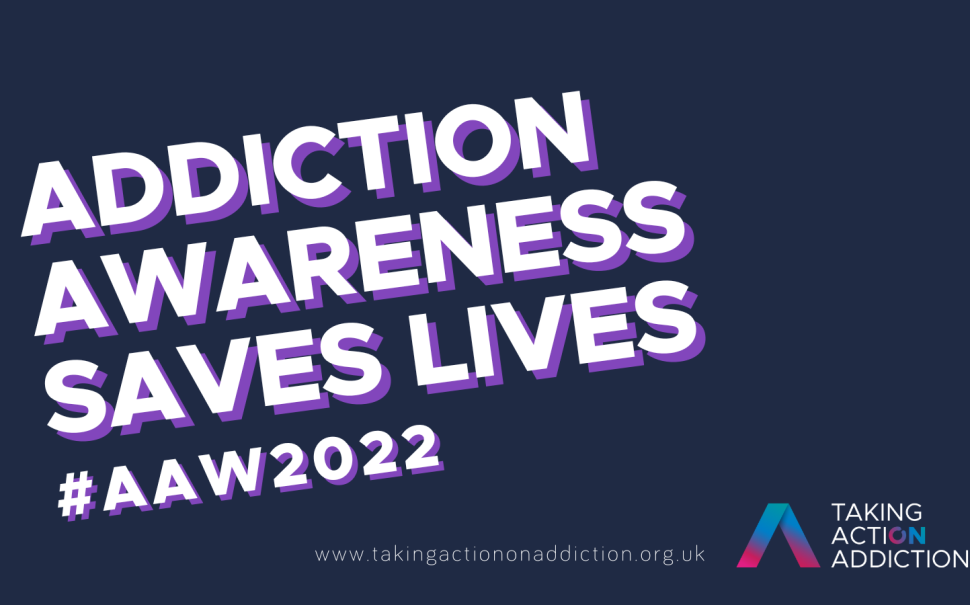A leading charity is launching its Addiction Awareness Week as it warns of a significant spike in demand for care, treatment and recovery services with more people turning to addiction to deal with the cost-of-living crisis.
Action on Addiction, a national campaign led by Forward Trust working with people affected by drug and alcohol addiction, will run from 30th October to 6th November to show addiction is a serious mental illness and that the stigma around addiction is preventing understanding and action.
The annual campaign comes as figures from Office for National Statistics (ONS) showed in August that drug-related deaths reached a record high, increasing 6.2% from 2020 to 4,859 in 2021.
Mike Trace, Chief Executive of Forward Trust, said: “Addiction is a serious mental health condition that can trap individuals, break up families, increase health, social and crime problems, and reduce economic activity.
“Addiction Awareness Week highlights the urgent need to recognise that drug and alcohol consumption, and rates of addiction, seem to be rising in the UK at an alarming rate.
“Addiction is deeply connected to other mental health conditions and so it is no surprise to see that whilst people grapple with the anxiety and stress of a cost-of-living crisis they are reporting relapse or turning to drinking, drugs or gambling.”
A YouGov poll commissioned by the Forward Trust revealed since the start of the cost of living crisis, 32% of adults reported to have relapsed into addiction or know someone close to them to have relapse.
Of those that had relapsed, the poll showed that 61% of respondents considered the cost-of-living crisis as the most significant trigger for anxiety, stress, and trauma.
However, there are huge regional differences in the drug death rate with the north east of England having the highest drug death rate of any region in the UK, where you are more than three times more likely to die due to drug poisoning than people in London (162 drug deaths per million vs 46 drug deaths per million).
Despite London being one of the lowest regions for drug deaths, there still remains large differences between boroughs, with Hammersmith and Fulham recording 39 drug related deaths in 2021, compared to Bexley which recorded 5 drug related deaths.
The ONS noted that part of the increase in deaths over the past decade has been driven by deaths involving opiates, but also substances including cocaine.
In 1993, cocaine accounted for 5% of drug related deaths, but in 2021, cocaine accounted for 17% of drug related deaths across England and Wales, representing a 240% increase in under two decades.
The age profile of individuals dying from drug misuse has also changed over time with the highest rate of drug misuse deaths in those between 40-49 years, who were born in the late sixties and early eighties, and have consistently had the highest rates of drug misuse deaths.
The national campaign calls on the government to increase addiction treatment spending approved by the government as part of its 10 year Drug Strategy and to further support calls for an independent review of alcohol harm.
Trace added that this awareness week is an urgent call for people to share that addiction is widespread across society, and that anyone struggling with addiction deserves compassion and support, and that recovery is possible.
Featured image credit: Action on Addiction





